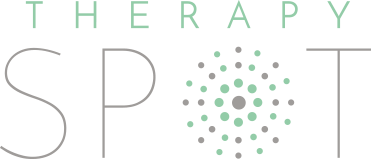Speech and language development happens more quickly than it may seem. Babies go from sounds to full sentences in two or three years. It’s exciting to watch, but the quick pace of language development means children can fall behind just as fast.
If you’re worried that your child isn’t meeting milestones, keep reading. This article breaks down milestones, why they matter, what to do if your child doesn’t meet them, and how to know if it’s time for speech therapy.
Tracking Milestones
How do we know whether or not a child’s language development is on track? We use milestones: skills or behaviours that 90% of children typically demonstrate within a specific age range. While delayed milestones are not a definitive indication of a problem, it is important to be aware of them. There are developmental milestones for everything: growth, movement and physical development, literacy, and speech and language.
A Range Of Milestones
It can be unnerving to notice that your friend’s child, who’s the same age as yours, seems to be doing more than your child can. Comparison and panic can creep in quickly, and you may feel as if you are not doing enough for your child.
But children develop at different paces, and there is a wide range for what’s “typical”. Try not to compare your child’s development with that of another child: they could simply be on slightly different tracks. Even if your child does fall behind at some point, it won’t be your fault.
There is an especially wide range for what is typical when it comes to speech. By the age of 24 months, most children are using anywhere from 200 to 300 words, and speech typically begins anywhere from twelve to eighteen months. Some children will start a little earlier; some may start a little later.
Early Speech Milestones
The ranges listed here are based on averages. Although there will always be outliers at both ends of the ranges, these numbers are a reliable indication of what most children are doing at certain ages.
3-12 months: Most babies are babbling, making gestures, and playing with other people.
12-18 months: At this stage, children are typically expected to start learning their first words, although their vocabulary will be limited. A child at this stage is also expected to use lots of gestures, such as pointing or shaking their head, and should be actively engaging with others.
18-24 months: Leading up to age two, a child’s vocabulary starts expanding. They should be learning new words regularly, as well as putting multiple words together. They won’t be forming sentences, but they should have a grasp of the fact that words can be combined to convey a message, such as “My toy”. While it is common for children to mispronounce words up until about 6 years of age, you should be able to understand your child without too much difficulty.
2 – 4 years: In most cases, this is the point by which speech difficulties are apparent. This can manifest in different ways, including the following:
- Vocabulary is very limited
- The child is not stringing words together
- The child does not use gestures (such as pointing)
- The child does not answer questions, or they answer by repeating the words in the question
- The child does not respond to simple instructions or information
- When words are used, they are spoken out of context or without meaning
- The child struggles with pronunciation of simple words
When to See a Speech and Language Therapist
It’s best to seek a speech and language assessment as soon as you notice that your child isn’t meeting communication milestones. This can seem scary for some parents, but all that’s happening at this stage is that the therapist is gathering information and learning about your child.
During the assessment, the speech and language pathologist will assess which areas of communication your child is strong in, and which they may need support with. In many cases, a hearing test will be done since some speech delays result from hearing impairments. Once the assessment has been done, the speech and language pathologist will recommend speech therapy that targets specific skills or areas.
Is There A Magic Age?
Children who aren’t speaking at all are commonly referred for speech and language assessments around 18 months of age. When children are born with a disability that is known to affect speech, they often start therapy as babies. Conversely, some concerns are not noticed until the child reaches school age, in which case they will start therapy later.
The Importance of Early Intervention
All too often, well-meaning friends (and even doctors) will tell families to “give it time” when developmental concerns arise. It is particularly common for parents of boys to be told that “boys hit milestones later than girls”. This can be problematic for a few reasons:
- As the parent, you know your child best. If you have concerns, they could very well be justified.
- If there is a reason why your child isn’t reaching developmental milestones, we know that early intervention is the most effective way to support them.
If you are concerned about your child’s development, it’s best to have a screening or an assessment completed by a speech and language therapist as soon as possible.
Early intervention (plus a little proactive support at home) goes so far. Even if an assessment does not reveal any problems beyond a simple delay, the speech and language pathologist can help with strategies to help the child catch up.
Getting Started
At Therapy Spot, we strongly encourage parents to take a proactive rather than reactive approach when it comes to their children’s communication skills. While it is true that some children will “catch up” on their own, we have no way of knowing who will or who will not. We give parents the peace of mind of knowing that no matter where their children are developmentally, strategies can be put in place to help them communicate.
Whether your child needs a gentle nudge in the right direction or a whole new way of communicating, we can help. Contact us today for an assessment.





